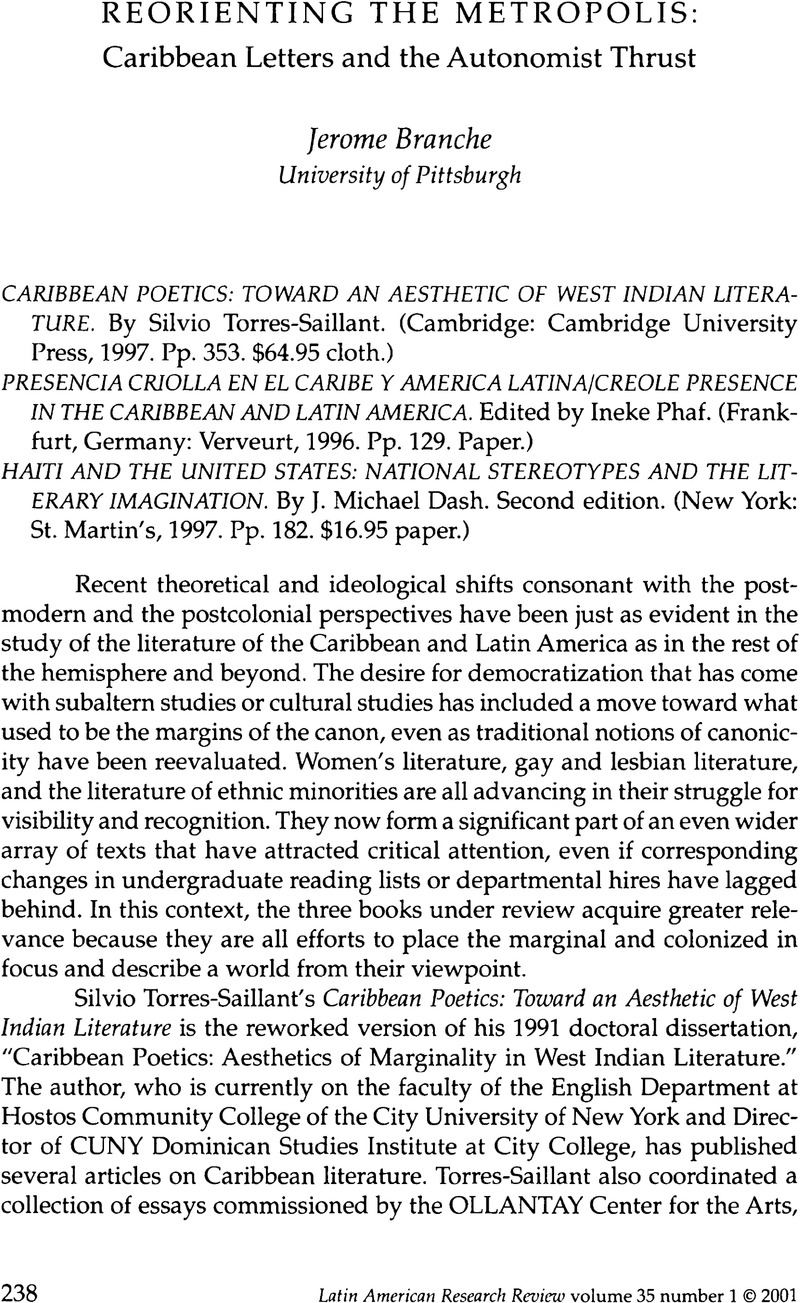No CrossRef data available.
Published online by Cambridge University Press: 05 October 2022

1. See the review by Harold Waters in World Literature Today 72, no. 2 (1998):436–37.
2. See, for example, William Luis, Literary Bondage: Slavery in Cuban Narrative (Austin: University of Texas Press, 1990).
3. Island Records recently released a three-CD anthology of the work of Lee “Scratch” Perry, a talented Jamaican arranger and mixer. Lee Scratch Perry: Arkology contains an illustrative sampling of popular tunes of the late 1970s as well as the numerous “dub versions” they generated. An important early aspect of making dub versions was to allow for improvised DJ monologues on the flip side of single releases.
4. See, for example, William Luis, “Race, Poetry, and Revolution in the Works of Nancy Morejón,” Hispanic Journal 14, no. 2 (1993):83–103. See also Conrad James, “Patterns of Resistance in Afro-Cuban Women's Writing: Nancy Morejón's ‘Amo a mi amo,'” in Framing the Word: Gender and Genre in Caribbean Women's Writing, edited by Joan Anim-Addo (London: Whiling and Birch, 1996), 159–68; and Linda Howe, “Nancy Morejón's ‘Negrismo’ in the Revolutionary Era: The Question of Gender and Race in Cuba,” Explicación de textos literarios 24, nos. 1–2 (1995–1996):91–111.
5. See A History of Literature in the Caribbean: Volume 1, Hispanic and Francophone Regions, edited by A. James Arnold et al. (Amsterdam and Philadelphia: John Benjamins, 1994).